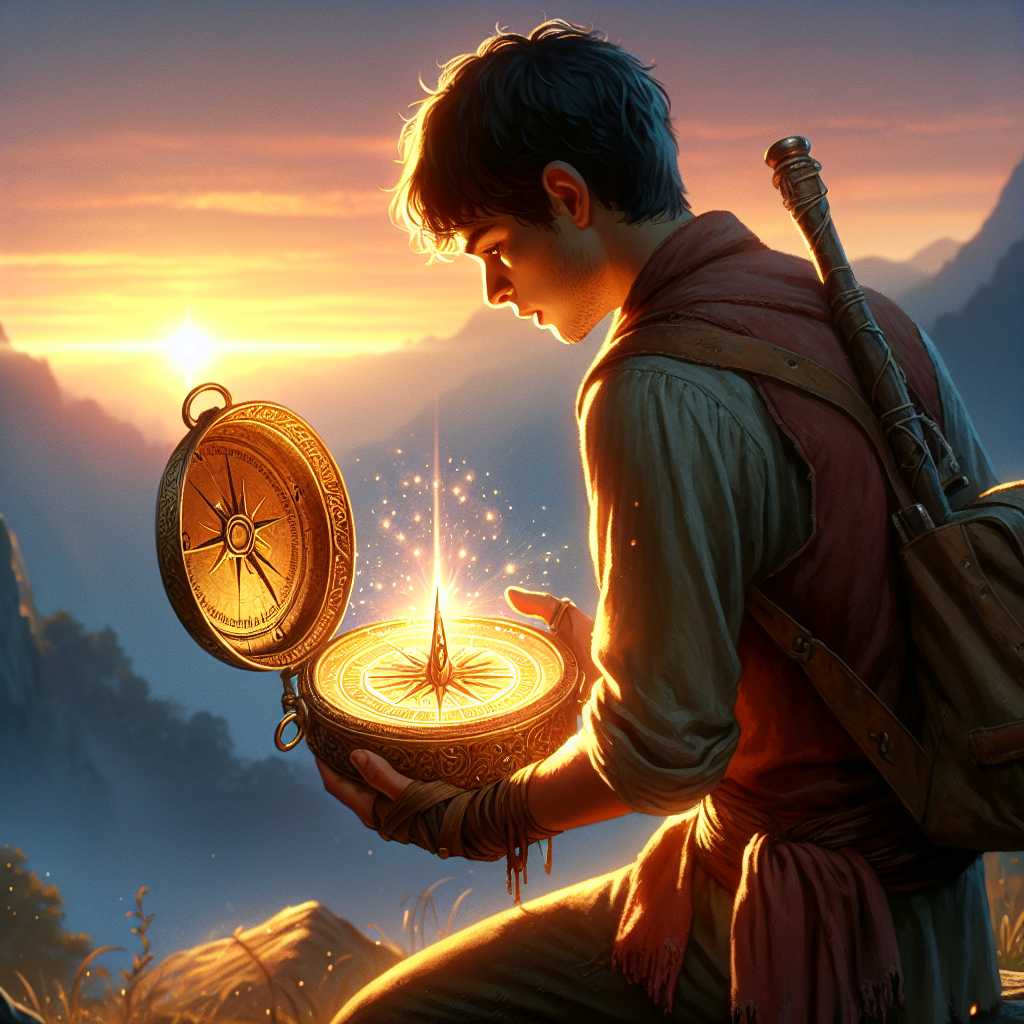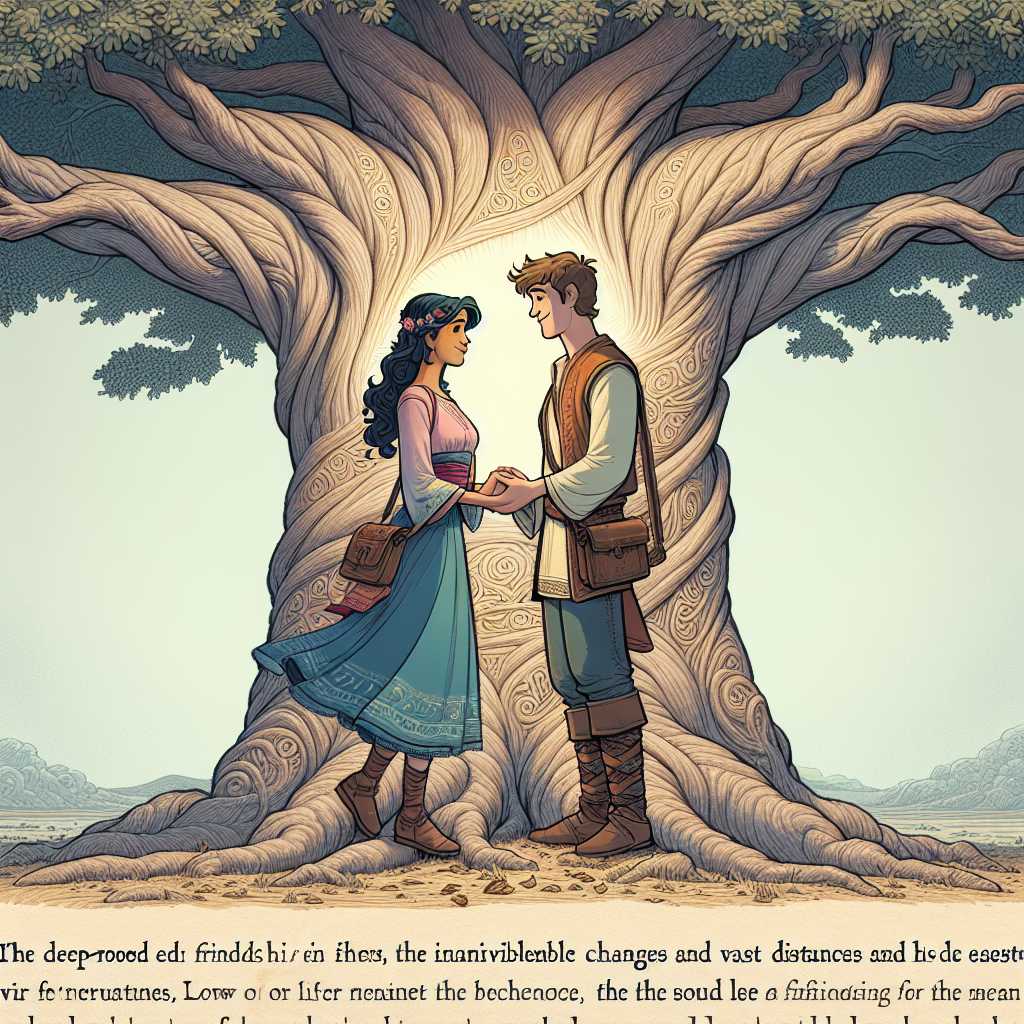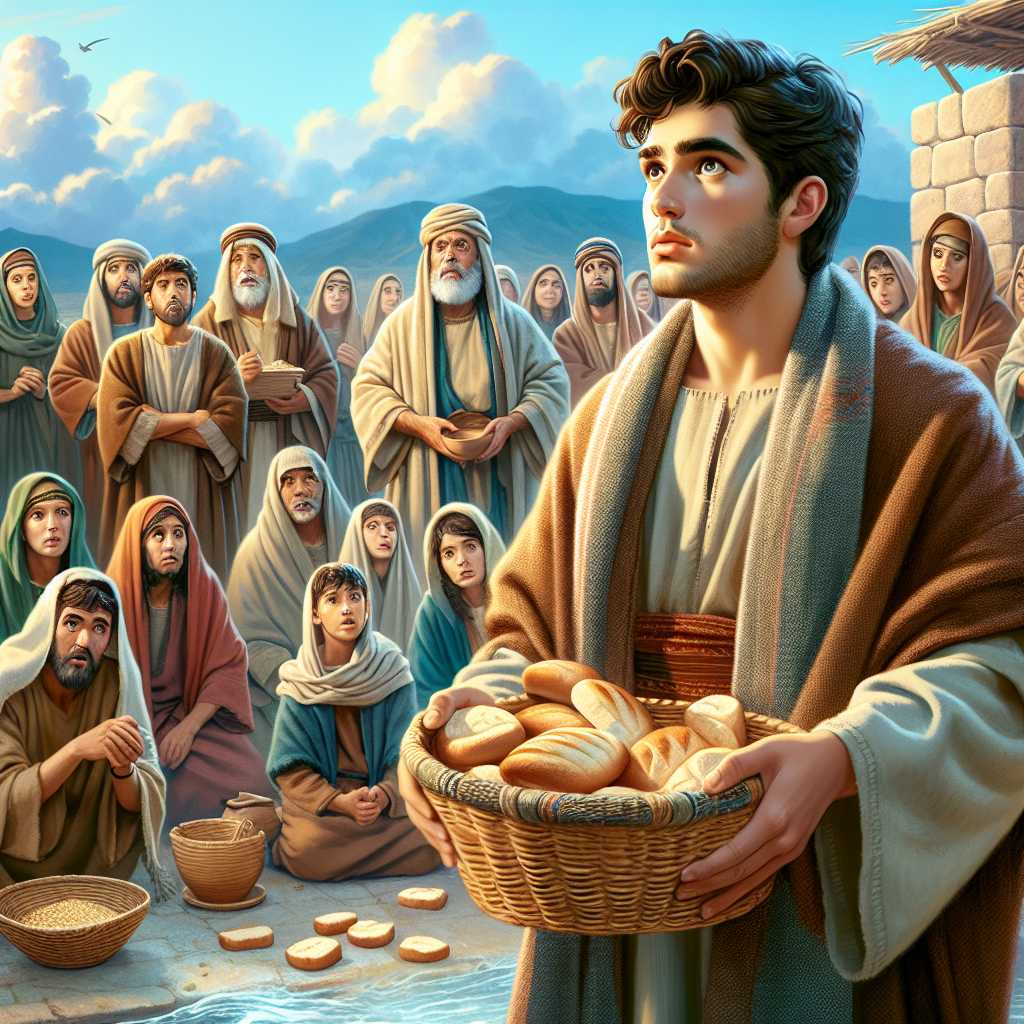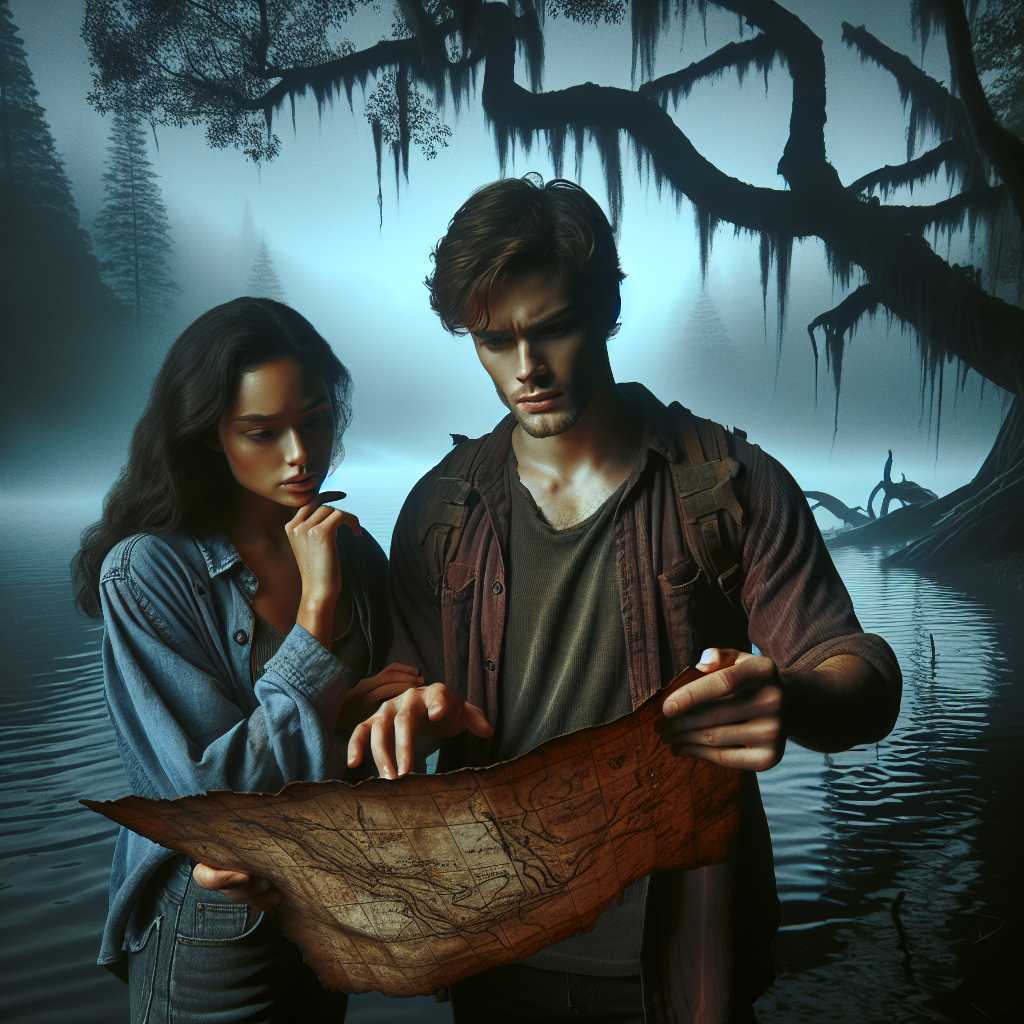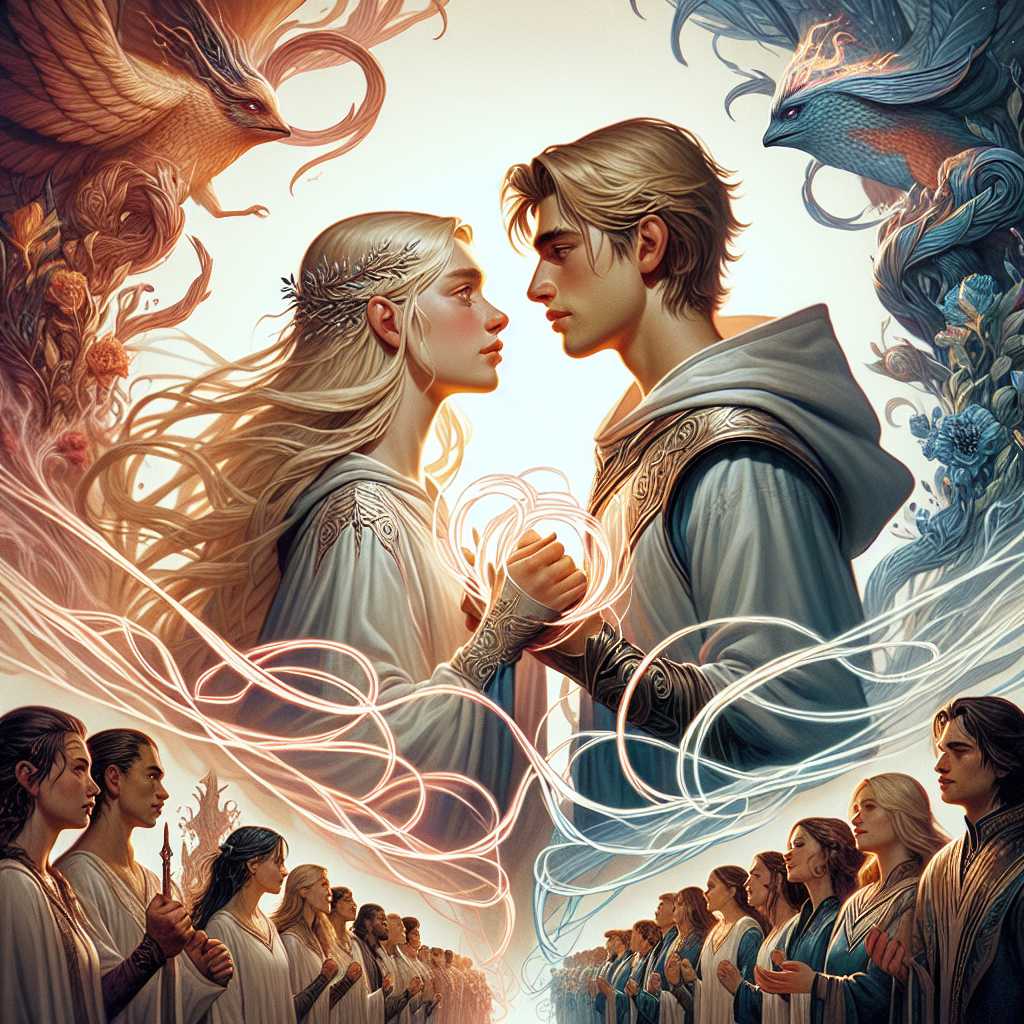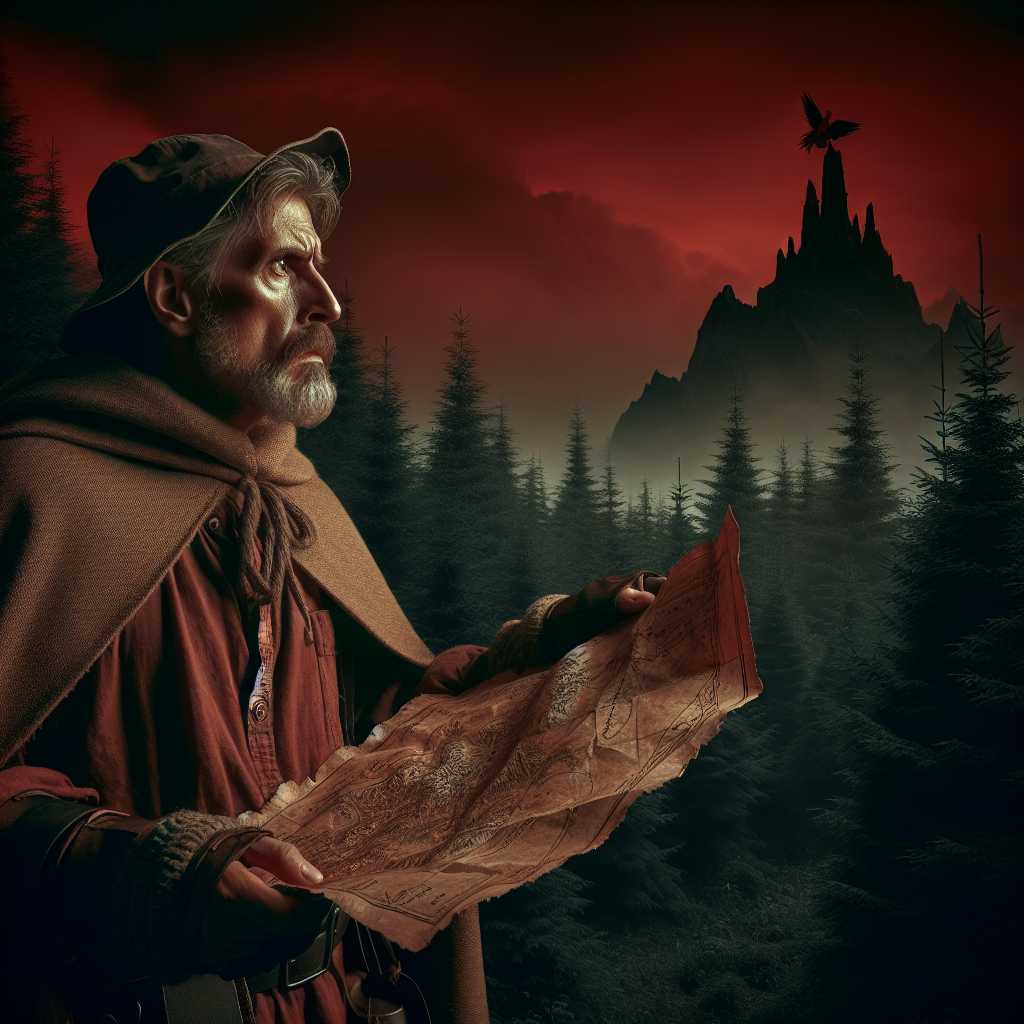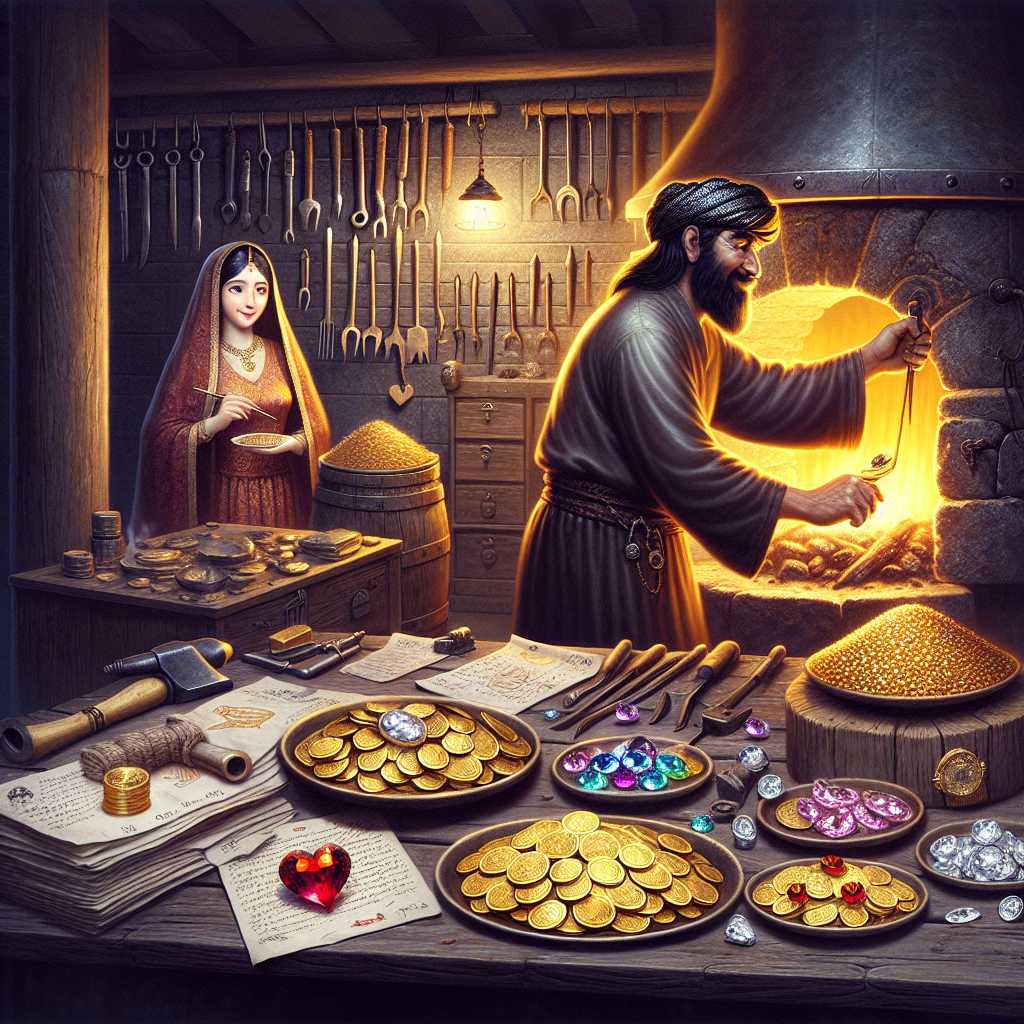
Once upon a time, in a quaint village nestled between rolling hills and a meandering river, there bloomed a love story so tender and true that it became the very heartbeat of the land. It began with two souls, as many love stories do: Isadora, a maiden with eyes like the dawn and a spirit as free as the wildflowers, and Tristan, a young blacksmith whose hands fashioned iron and steel as if he were shaping the whispers of the wind.
In the blush of Isadora's youth, the villagers would often catch her pirouetting through the market, her laughter tinkling like silver bells. Her grace was matched only by her kindness, and she was beloved by all who knew her. Yet it was not until Tristan's arrival that the ember of love sparked within her.
Tristan had come from a far-off city, seeking solace in the simplicity of village life. His presence swiftly became the talk of the town, not just for his exotic origins but for the exquisite craftsmanship that soon graced their homes and hearts. His fingers, strong and sure, were softened by the gentleness with which he wielded his hammer and tongs, and it wasn't long before his creations bore the hallmark of his burgeoning reputation.
It was at the midsummer fair that their paths first crossed. Amidst the merriment and the clinking of goblets, they found themselves, quite unwittingly, by the apple bobbing barrel. Isadora, ever the sprite, emerged victorious, an apple clenched triumphantly in her teeth. As she looked up, her gaze met Tristan's, and a silent understanding passed between them.
Day by day, their connection grew. Tristan would often find wildflowers on the threshold of his forge, left anonymously, though he knew in his heart whence they came. Isadora, for her part, would hear melodies in the rhythm of Tristan's hammer, a music that called to something deep within her. Before long, they were meeting under the cover of dusk, sharing whispered dreams beneath the blanket of stars.
"Isadora," Tristan once said as they lingered by the river's edge, the moonlight dancing in her hair, "you have bewitched me, heart and soul. I feel as though you were the missing piece of a puzzle I did not know was incomplete."
"And you," Isadora replied, her eyes reflecting the depths of the night, "have given form to the love I have always yearned for but never knew how to name. You are the song my heart sings."
Their love blossomed like the roses in the village gardens, but as with all tales of the heart, there came a challenge. Word of Tristan's talent spread far and wide, reaching the ears of a nobleman who sought the blacksmith for his own grand estate.
"Tristan," the nobleman entreated, "your skills are wasted in this small village. Come work for me, and I shall give you riches beyond your imagining."
Torn between his love for Isadora and the opportunity to secure their future, Tristan was beset by a turmoil that raged like the forge he tended so carefully. He confided in Isadora, laying bare his predicament.
"I would have you choose what makes your soul sing, Tristan," Isadora said softly. "If that is to forge metals into masterpieces for noblemen, then go with my blessing. Love does not shackle; it liberates."
Tristan struggled with the decision, but love, the silent weaver of destinies, guided him. He declined the nobleman's offer, choosing instead to remain in the village, his hands shaping the world around him, his heart forever entwined with Isadora's.
The nobleman, though initially angered, came to respect Tristan's resolve and commissioned work from him nonetheless, vowing to support their union. Thus, the blacksmith and the maiden prospered, their love proving to be the truest of wealth.
Years passed, and Isadora and Tristan grew old together, their love never fading. The village children would often gather around them, eager to hear the story of their love—a tale that had become as entwined in the village's lore as the ivy on the old stone walls. Their love was a testament to the beauty of choice and the strength of devotion.
"Remember, little ones," Isadora would say with a twinkle in her eye, "the truest love is that which frees you to become all that you are meant to be. It is the wind beneath your wings and the earth beneath your feet."
And Tristan would add, with a voice as warm as the embers in his forge, "Love is the master artisan. In its forge, we are both the smith and the metal, shaped and shaping, molded and molding, in the dance of life together."
So lived Isadora and Tristan, until the stars called them home. Their love story lingered in the village, a sweet melody carried on the wind, a reminder that true love is an art that, once mastered, becomes the stuff of legends.



